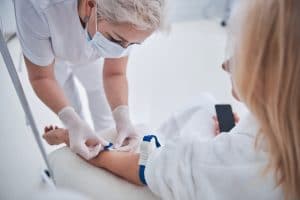Making the decision to end your Alcoholism should not be marginalized. Taking steps toward sobriety is a big deal. It can be extremely difficult, both emotionally and physically. Alcohol can have a powerful grip on the human psyche and body. Learning how to loosen its grasp is critical in order for someone to recover from alcohol addiction.
Physical Impact
Over time the physical body adjusts to the consumption and toxicity of alcohol. The organs become used to functioning, though not healthfully, under the influence of alcohol. Eventually, the body can come to rely on the presence of alcohol. Sudden removal of alcohol can be dangerous. The body can respond to the withdrawal of alcohol, or detox, in a number of ways with varying levels of severity. The most severe types of reactions include seizures and general organ failure which may lead to coma. Other physical effects of alcohol withdrawal include tremors, nausea, confusion, change in appetite, change in sleep pattern, and mood swings. Factors that may affect the level of withdrawal symptoms include how much and for how long the person has been abusing alcohol, family history of alcohol or other substance abuse, and stability of home life and financial status.
Emotional Impact
The emotional impact of Alcoholism can be more difficult to gauge. While the body physically craves the alcohol, the mind does also. The mind craves the drink. The mind becomes attached to drinking during certain times of the day, or while doing certain activities, or just to chase “the buzz”. Getting the mind to detach from the memories or the chase of “the buzz” can be extremely difficult.
Quitting Is Possible
It isn’t impossible for someone with Alcoholism to quit drinking without entering into a formal rehabilitation program. Doing so, however, would increase the likeliness of a successful recovery. Working with professionals who are trained in addiction recovery and in a controlled environment provides a safe environment with programs tailored to the recovering patient.
Options
Medical treatment may be necessary in many cases, but not all. For some people, different types of non-medical therapy are available to aid in recovery. Cognitive Behavior Therapy helps people develop strategies for coping with their addiction. The focus is on addressing and changing irrational thoughts, beliefs, and attitudes. Dialectical Behavioral Therapy is a type of therapy that focuses on mindfulness and the management of emotional barriers and stressors. Artwork Therapy is also a form of addiction treatment being used to help those in recovery with the expansion of their forms of communication through art. Yoga and Breathwork Therapy continue with the use of mindfulness similar to Dialectical Behavioral Therapy but from more of a focus on using the body to manage what’s happening in the mind. The physical aspect of Yoga Therapy contributes to the improvement of the physical body and the release of endorphins which is good for the mind. As the body learns to stretch and move effectively and eventually with ease, the breathing improves. Effective breathing allows for stronger meditation. A strong meditative practice can allow for mental clarity which can lead to breaking the pattern of alcohol abuse. The triggers that compelled on to drink prior to therapy can be better managed with a clear mind.
Conclusion
Addiction treatment begins with education. It’s most beneficial for someone who’s struggling with addiction to learn what their recovery options are. Professionals can help determine the best individual approach toward a person’s sobriety. Doctors can prescribe medication when necessary and counselors can provide appropriate therapeutic environments. Once a person has learned what types of programs are available, the next step is to engage in active addiction treatment. If you or someone you know is struggling with Alcohol Use Disorder, get educated. Find out more about why this disorder is so destructive if you aren’t already aware. Most importantly, find out more about how to recover and become sober by contacting us today at Crosspointe Recovery.





